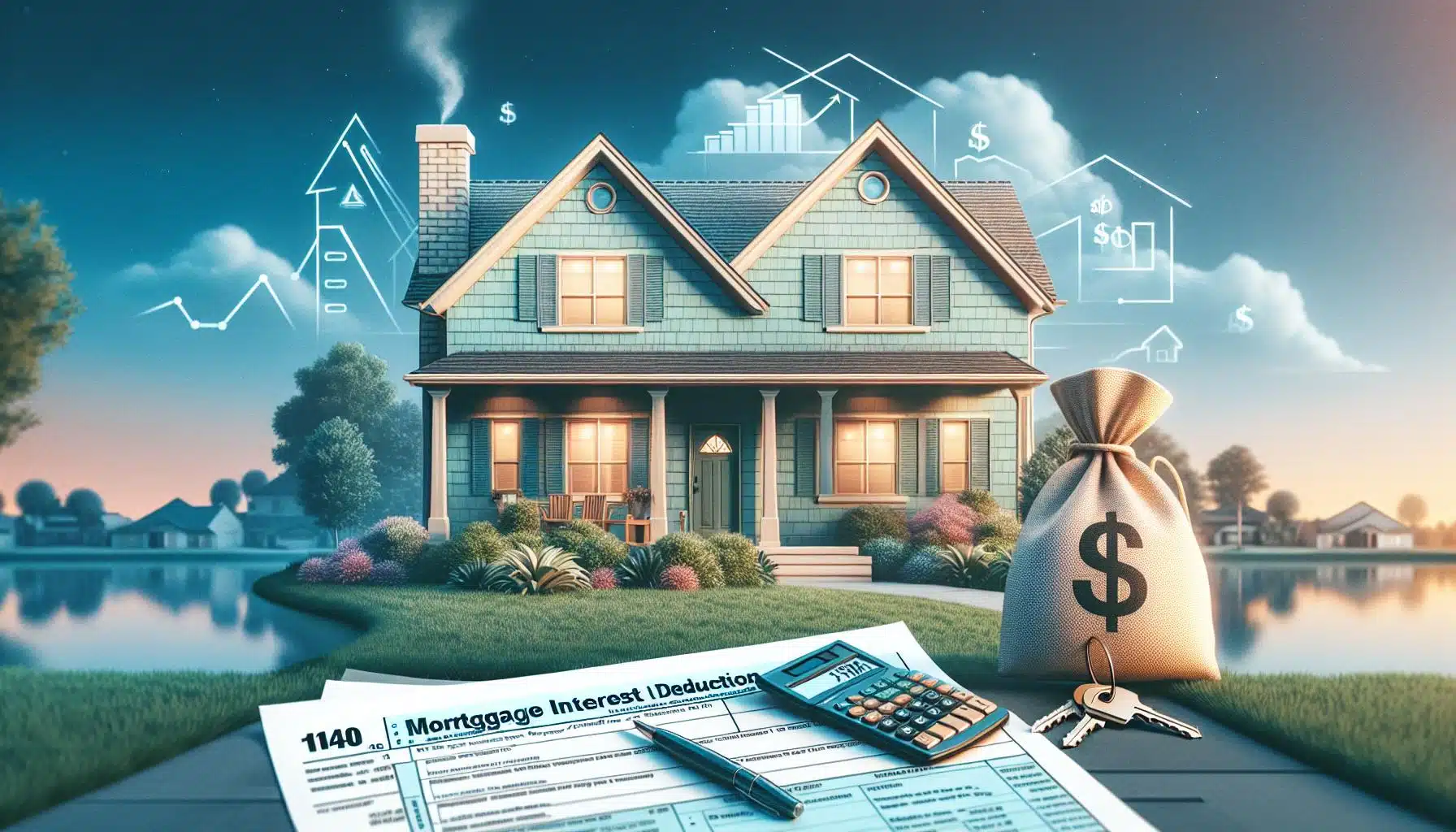Owning a home does more than give you a place to call your own—it can actually save you money come tax time. When you understand the tax benefits of buying a home, you’ll quickly see why homeownership can be a smart financial move. Between deductions and exclusions, the IRS rewards homeowners with a range of perks that renters simply don’t get.
If you’re thinking about buying a home or you’re already a homeowner, this guide will walk you through seven major tax advantages that could lower your taxable income and help you keep more money in your pocket.
1. Mortgage Interest Deduction
Let’s start with one of the biggest and most well-known perks. When you get a mortgage to buy a home, you’re likely paying a significant chunk each month in interest. The good news? You can deduct mortgage interest on your federal income tax return.
As of now, if your loan amount is under $750,000 (or $375,000 for married people filing separately), you can deduct all the interest you’ve paid throughout the year. This is especially valuable in the early years of your loan, when a big portion of your monthly payment goes toward interest rather than principal.
For folks juggling student loans or credit card debt, this is one of the few legal ways to reduce your taxable income based on money you were going to spend anyway.
Example:
Let’s say you paid $10,000 in mortgage interest last year. That’s a possible $10,000 deduction from your gross income, lowering what you owe Uncle Sam.
2. Property Tax Deduction
Another expense homeowners face is property taxes. The IRS offers relief by allowing you to deduct up to $10,000 (or up to $5,000 if married filing separately) in combined state and local property tax payments.
- Applies to your main residence and, in some cases, a second home
- Limits capped under the IRS’s State and Local Tax (SALT) deduction rules
While the state you live in can affect how high your property taxes are, the coverage allowed under this tax break can still be a big help during tax season.
3. Mortgage Points Deduction
If you bought your home recently, you may have paid “points” to lower your mortgage interest rate. Each point typically costs 1% of the total loan amount—but here’s the kicker: those mortgage points are usually tax-deductible.
Points paid as part of your closing costs or over the life of the loan can reduce your taxable income when properly documented. It’s just one more reason that upfront investment might be worth it in the long run.
4. Home Office Deduction (For the Self-Employed)
Work from home? If you’re self-employed or run a small business from your house, you may be able to claim the home office deduction. This isn’t just for desk space either—you can deduct a portion of your utilities, internet, rent or mortgage, and even repairs proportional to your work area.
There are two ways to claim this deduction:
- Standard method: Calculate actual expenses and apply them to the portion of your home used for work.
- Simplified method: Use $5 per square foot of dedicated home office space (up to 300 square feet).
This tax break won’t apply if you’re a W-2 employee working remotely, but for freelancers, gig workers, and entrepreneurs, it’s a game-changer.
5. Capital Gains Exclusion
Did you know you can make a profit selling your home and not pay taxes on it? It’s true! If you’ve lived in your main home for at least two of the last five years before selling, you can exclude up to:
- $250,000 in capital gains (single filer)
- $500,000 in capital gains (married filing jointly)
That means if you bought your house for $300,000 and later sold it for $700,000, you could walk away with the entire $400,000 profit tax-free (if you meet all the requirements).
6. Tax-Free Profits from Home Improvements (in Certain Cases)
Some home improvements help with comfort. Others help with taxes! If you sell your home for a profit, any major capital improvements you’ve made—think a new roof, a renovated kitchen, or energy-efficient windows—can be added to your home’s cost basis.
This reduces your capital gains and could help you stay under the IRS exclusion cap. Plus, energy-efficient upgrades may even qualify you for tax credits of their own. That’s savings both now and later.
7. Tax Breaks for First-Time Homebuyers
Buying your first home? Welcome to an exciting new chapter! There are extra tax breaks designed just for you, particularly when it comes to using retirement savings for your purchase.
- You can withdraw up to $10,000 from an IRA penalty-free (though you may owe income tax)
- 401(k) accounts can be borrowed from—but must be repaid
While dipping into retirement savings should be done carefully, these first-time homebuyer options can come in handy when putting together a down payment.
The Bottom Line: Homeownership Pays Off
The tax benefits of owning a home are one of the most financially rewarding parts of homeownership. From deductions on mortgage interest and property taxes to tax-free gains when you sell, every part of the journey has the potential to save you money.
Of course, tax laws can change, so it’s always smart to talk to a tax professional before making big real estate decisions. And remember—some of these perks only apply if you choose to itemize deductions and not just take the standard deduction.
Whether you’re already living in your dream house or you’re still scrolling through real estate apps late at night, being aware of these perks can help you make smarter financial choices.
Want to learn more ways to save money or make the most of your finances? Check out our other guide on how to reduce mortgage insurance costs.
To read more on this topic, visit the full original article here on Investopedia.

